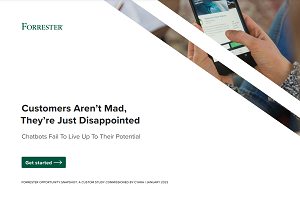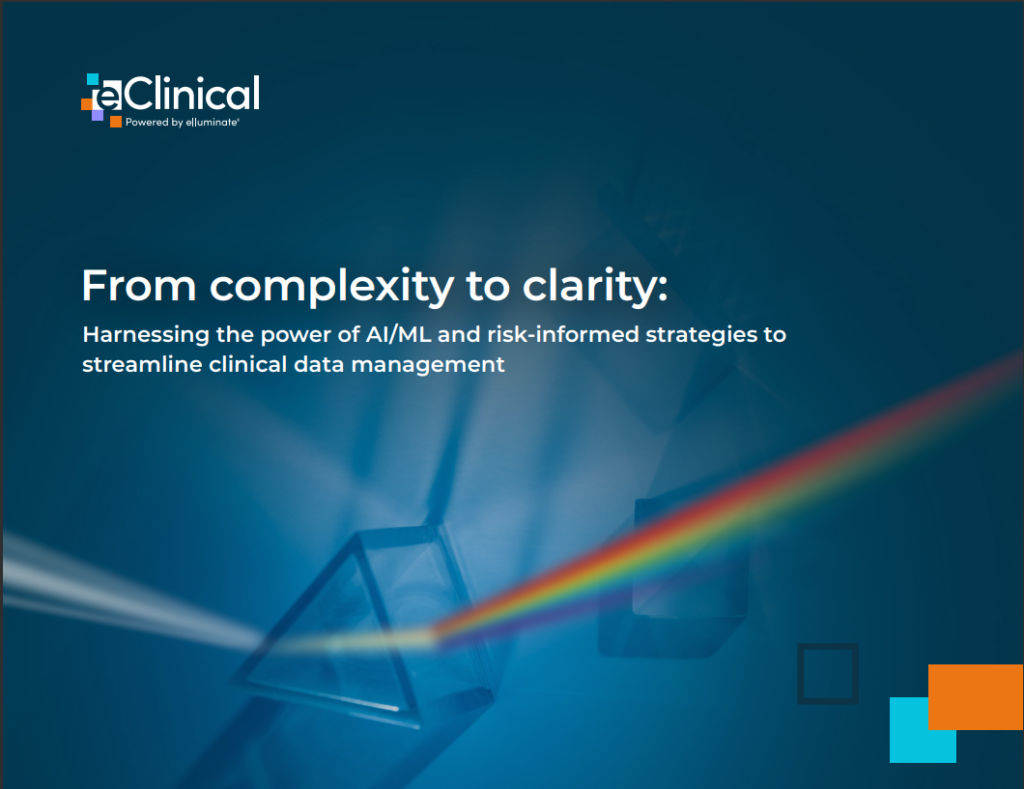
Cyara, provider of the Automated Customer Experience (CX) Assurance Platform, released a new global study that shows while most customers want to use chatbots for automated support, many businesses fail to deliver positive chatbot experiences even as they increasingly rely on them as primary methods of customer interactions online. Additionally, more than half of customers believe a positive or negative chatbot experience is a reflection of the overall brand.
The survey, conducted in November 2022 and commissioned by Forrester Consulting on behalf of Cyara, explores the consumer sentiment about chatbots. The study polled 1,554 global consumers who have used sales and/or support chatbots in the last six months about their recent chatbot experiences and expectations.
For most respondents, chatbots were the top way consumers typically interacted with brands in the last six months. However, consumers surveyed gave their chatbot experiences an average rating of 6.4/10 or 64%—equivalent to a D grade. When specifically asked about their chatbot interactions, 50% of customers said they often feel frustrated; nearly 40% of these interactions were said to be negative.
Overall, findings from the study include:
- Customers want to use chatbots. Customers like chatbots as they provide 24/7 support, faster response times, and autonomy. The customers that have used chatbots in the last six months rank them higher than speaking directly with an agent or any other digital avenue. However, customers are often met with friction while interacting with them.
- Almost 75% of customers agree that chatbots aren’t able to handle complex questions. Customers find chatbots are often unable to provide accurate answers, with more than half of customers agreeing it is difficult to find a solution to their question or problem using a chatbot. Almost half of respondents said that chatbots have provided them with responses and/or solutions that didn’t make sense in the context of their question. Customers also struggle to find alternate resolutions to their problems with more than half of them reporting that they are often unable to connect with an agent even after exhausting the chatbot’s responses.
- Negative chatbot interactions lead to unfavorable business outcomes. The challenges of using chatbots push customers to seek out alternate and possibly more expensive ways of interacting with a brand. Thirty percent of customers said after a negative chatbot experience, they are likely to take their purchase to a different brand, abandon their purchase altogether, or tell their friends and family about their poor experience with the brand.
- Positive chatbot experiences bring value to customers and businesses. Following good chatbot experiences, 61% of the customers surveyed said they are more likely to return to a brand. While 56% of respondents are more likely to seek out chatbots in the future after a positive experience with a chatbot, they are also far more likely to recommend that brand to others afterward.
“Delivering positive chatbot experiences has a critical impact on customer satisfaction and sales, and sub-par chatbots will not cut it for consumers today. Organizations that invest in quality assurance testing and training chatbots can provide customers with better and more consistent chatbot experiences,” said Dennis Reno, Chief Customer Officer of Cyara. “Businesses that strive to meet customers’ chatbot expectations can increase customer loyalty, boost brand reputation, and lower contact center support costs since customers are less likely to seek out more expensive avenues of communication. And of course, satisfied customers lead to increased sales, which has a positive impact on a company’s bottom line.”
To access the full study, visit HERE.
Survey Methodology
This Forrester Opportunity Snapshot was commissioned by Cyara. To create this study, Forrester Consulting supplemented this research with custom survey questions asked of global consumers who have used sales and/or support chatbots in the last six months. The customer survey began and was completed in November 2022. Respondents were split across the U.S., U.K., Ireland, Australia and New Zealand and consisted of Baby Boomers, Gen X, Millennials and Gen Z.
Sign up for the free insideAI News newsletter.
Join us on Twitter: https://twitter.com/InsideBigData1
Join us on LinkedIn: https://www.linkedin.com/company/insidebigdata/
Join us on Facebook: https://www.facebook.com/insideAI NewsNOW




Speak Your Mind